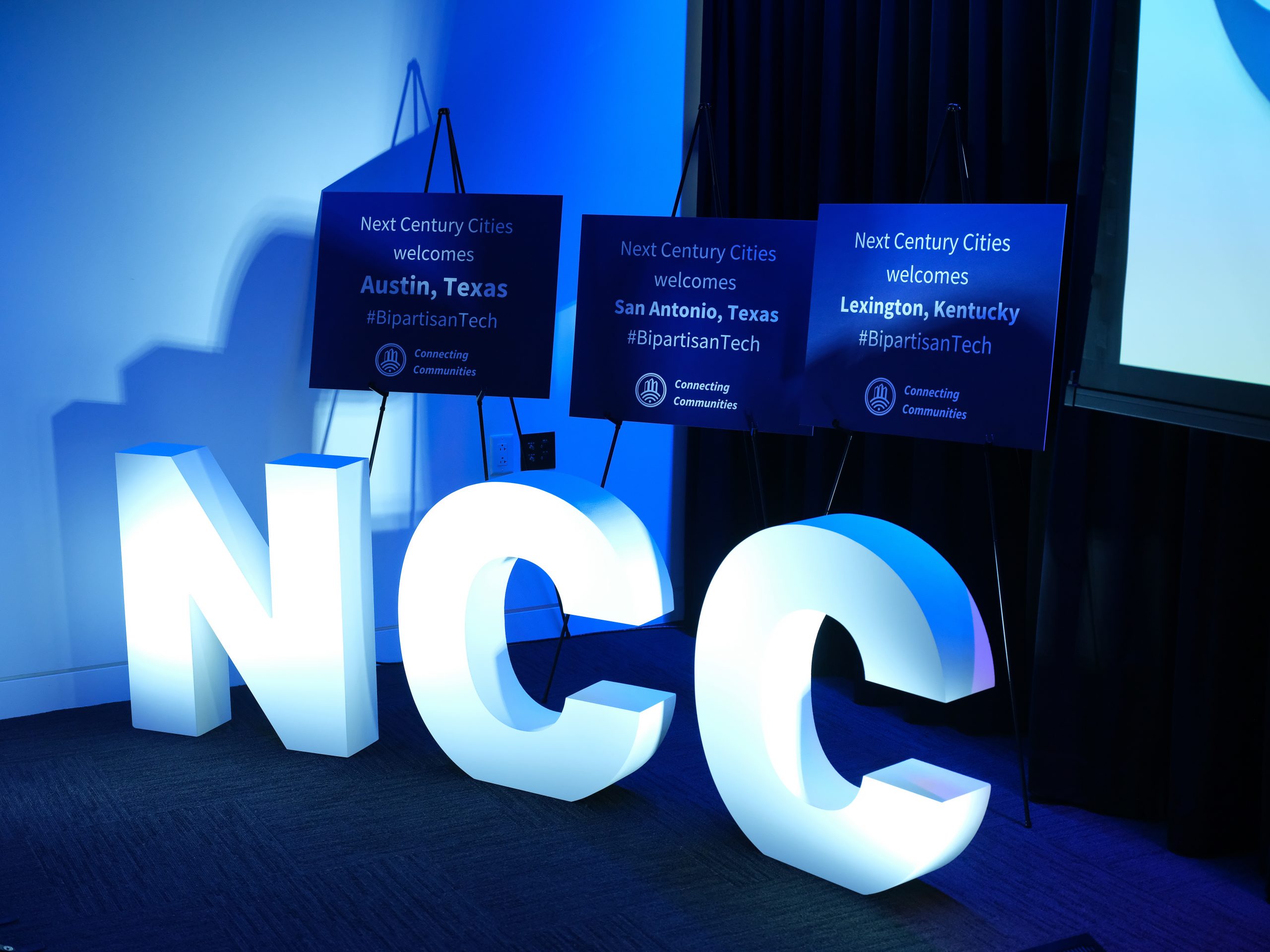By Corian Zacher

Pictured (left to right): Laura B. Fogle, Digital Durham; Autumn Evans, City of Detroit; John Speirs, Harris County Office of Broadband; Julia Yates, City of Philadelphia; & Corian Zacher, Next Century Cities

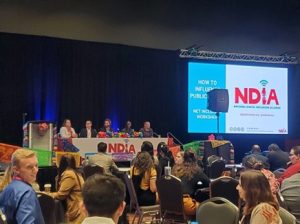
Over 800 broadband advocates from across the US convened in San Antonio, Texas, for Net Inclusion 2023, a three-day conference organized by the National Digital Inclusion Alliance. It featured topics ranging from technology accessibility for people with disabilities to skilling incarcerated residents for economic opportunities upon reentry. Next Century Cities led discussions on why collaborating with local officials is essential for achieving digitally equitable outcomes throughout communities.
In the three years since 2020, the number of local digital equity plans increased exponentially. Detroit, Michigan, Philadelphia, Pennsylvania, Durham, North Carolina, and Harris County, Texas stand alongside many municipalities across the U.S. that have worked with their community to build sustainable digital inclusion strategies.
On February 28, 2023, Juliet Yates, Digital Inclusion Manager for the City of Philadelphia; Laura B. Fogle, Founder and Board Member of Digital Durham; John Speirs, Broadband Manager for the Harris County Office of Broadband; and Autumn Evans, Deputy Digital Inclusion Director for the City of Detroit shared their digital equity expertise on a panel moderated by Next Century Cities’ Senior Policy Counsel Corian Zacher. 
Juliet Yates’ work transcends Philadelphia, and her leadership has been instrumental in developing a statewide coalition that keeps community leaders informed about broadband policy. In her words, “You don’t need 500 people in your coalition to start. Find the four people who are going to show up, and then build your coalition from there.”
As with Pennsylvania, broadband offices across the U.S. have grown rapidly since the Infrastructure Investment and Jobs Act passed. Yates recommends getting to know state broadband staff and helping them understand local priorities and connectivity barriers. 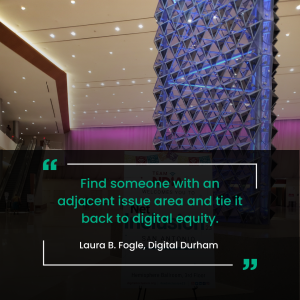
As Laura B. Fogle’s work through Digital Durham illustrates, nonprofit organizations play an integral role in providing leadership and support for local digital equity initiatives. Fogle’s role allows her to advocate for the community, collaborate with the state broadband office, and push local officials to take ownership of digital equity goals. The City of Durham recently opened a Digital Inclusion Manager position, taking an important step toward establishing leadership within their local government.
As the third most populous county in the nation, Harris County, Texas, sees firsthand the challenges of connectivity in urban and rural communities alike. In November 2020, County Commissioner Adrian Garcia authored a resolution to create the Harris County Office of Broadband. John Speirs says that he keeps this resolution on his desk to maintain focus on the important work to connect the thousands of residents in the County who remain disconnected. Speirs works in coalition with other communities across Texas and regularly meets with state broadband leaders, helping to elevate the persistent connectivity barriers that residents living in Harris County face. 
Like many other local broadband leaders across the U.S., Autumn Evans’ work with the City of Detroit predates Michigan’s broadband office. Even without a comprehensive state strategy in place, Evans works with residents to understand local broadband needs and help them navigate federal broadband programs. Evans’ leadership on Connect 313, the City’s digital inclusion strategy, supported over 100,000 households enrolling in the Emergency Broadband Benefit program, now the Affordable Connectivity Program. Additionally, she led a support initiative for 7,000 local seniors, providing devices, connectivity, and technical support. Evans explained that the digital divide in Detroit follows poverty lines and intersects with other systemic inequities. When asked how community leaders can influence local policy, she stressed the importance of bringing the immediate need for broadband into existing venues, like City Council meetings, to meet people where they are. 
Those who were unable to attend Net Inclusion can review the livestream from several sessions on March 1st and March 2nd. Learn more about Net Inclusion from NCC’s Deputy Director, Brian Donoghue, who summarized a workshop on influencing broadband policymakers.
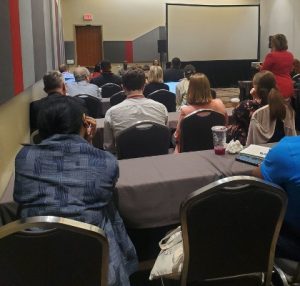

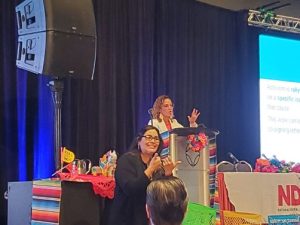
Additional Resources:
- NCC Hosts Panel Discussion with Local Government Officials at the 2022 Net Inclusion Conference
- NCC Celebrates Digital Inclusion Week With Local Leaders and Organizational Allies in the DMV
- NCC Applauds State Digital Inclusion Efforts in New Mexico and Urges Local Officials to Share Best Practices
- Building Sustainable Solutions for Digital Inclusion with Local Leadership in Austin, Texas

